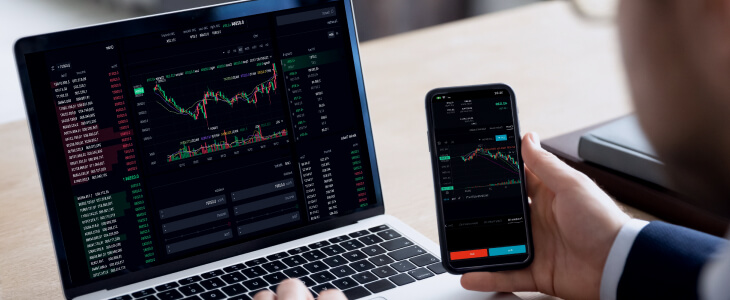
The Ultimate Guide to Forex Trading Accounts
In the world of currency trading, having the right forex trading account Trading Brokers account is essential for navigating the complexities of the forex market. This comprehensive guide will cover everything you need to know about forex trading accounts, from selection criteria to best practices for successful trading.
What is a Forex Trading Account?
A forex trading account is an online account provided by brokers that allows traders to buy and sell currency pairs. These accounts enable traders to execute buy and sell orders, manage their trading portfolios, and conduct analyses to inform their trading strategies. Forex trading accounts can be opened quickly and easily, making them accessible to both novice and experienced traders alike.
Types of Forex Trading Accounts
Before opening a forex trading account, it’s important to understand the various types available, as they come with different features and benefits:
- Standard Account: The most common type of account, suitable for traders who have a good understanding of forex trading. Standard accounts allow for larger trades and offer a variety of features, including leverage and margin trading.
- Mini Account: A great option for beginners, mini accounts allow traders to control smaller amounts of currency, thus reducing risk. They typically require lower minimum deposits compared to standard accounts.
- Micro Account: Ideal for those who are new to forex trading, micro accounts enable traders to make trades with very small amounts of currency, making them less risky but also potentially less profitable.
- VIP Account: Designed for experienced traders with a high trading volume, VIP accounts offer exclusive benefits such as personalized service, lower spreads, and higher leverage options.
Choosing the Right Forex Trading Account
When selecting a forex trading account, consider the following factors:

- Trading Strategy: Your trading style will significantly influence which account type is best for you. For instance, day traders might prefer a standard account with higher leverage, whereas swing traders might opt for a mini or micro account.
- Minimum Deposit: Different brokers have varying requirements for minimum deposits. Choose one that fits your budget, but ensure it does not compromise your trading goals.
- Leverage Options: Different accounts offer different levels of leverage. Higher leverage allows for larger trades but increases risk. It’s essential to find a balance that suits your risk profile.
- Trading Fees: Make sure to review the spread, commission, and other trading fees associated with the account. Understanding these costs is crucial as they can greatly affect your profitability.
- Customer Support: Reliable customer support can make a significant difference, especially for novice traders. Look for brokers that offer 24/7 support through various channels.
Setting Up Your Forex Trading Account
Setting up a forex trading account is generally straightforward. Here are the steps involved:
- Choose a Broker: Research and select a broker that meets your requirements based on the factors discussed above.
- Complete Registration: Fill out an online application form. This usually includes providing personal identification and information about your trading experience.
- Fund Your Account: Once your account is verified, you can deposit funds using your preferred payment method. Ensure you comply with any minimum deposit requirements.
- Download Trading Software: Most brokers provide a trading platform, such as MetaTrader 4 or MetaTrader 5. Download and install the software to start trading.
- Begin Trading: Familiarize yourself with the trading platform, and start executing trades. It’s advisable to use a demo account initially to practice your trading strategies without risking real money.
Tips for Successful Forex Trading
Success in forex trading requires a combination of knowledge, strategy, and discipline. Here are some tips to help improve your trading performance:
- Educate Yourself: Continuously learn about the forex market, trading strategies, and risk management to enhance your skills.
- Develop a Trading Plan: A well-crafted trading plan should include your trading goals, risk tolerance, and strategies. Stick to your plan to avoid emotional trading decisions.
- Practice Risk Management: Always set stop-loss and take-profit levels to manage your risk. Never risk more than you can afford to lose.
- Stay Informed: Keep up to date with global economic events and news that can affect currency prices. Economic indicators like interest rates and employment figures are particularly important.
- Review and Adjust: Regularly analyze your trading results to learn from your mistakes and successes. Adjust your strategies as necessary to continuously improve your performance.
Conclusion
Opening a forex trading account is the first step toward entering the exciting world of currency trading. With the right account, tools, and knowledge, you can navigate the complexities of the forex market and work toward achieving your trading goals. As with any investment, remember to trade responsibly and continuously improve your skills to achieve long-term success.